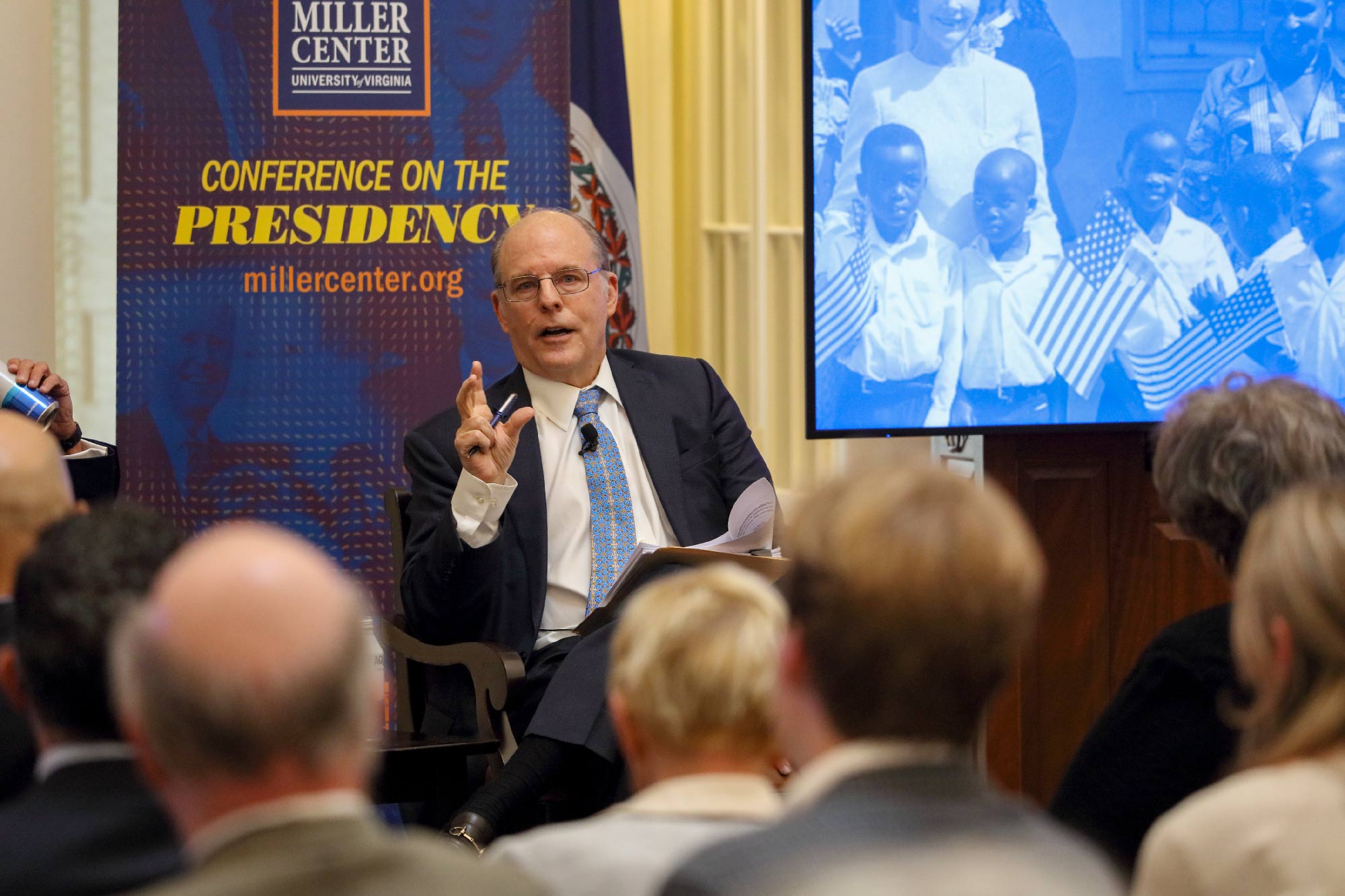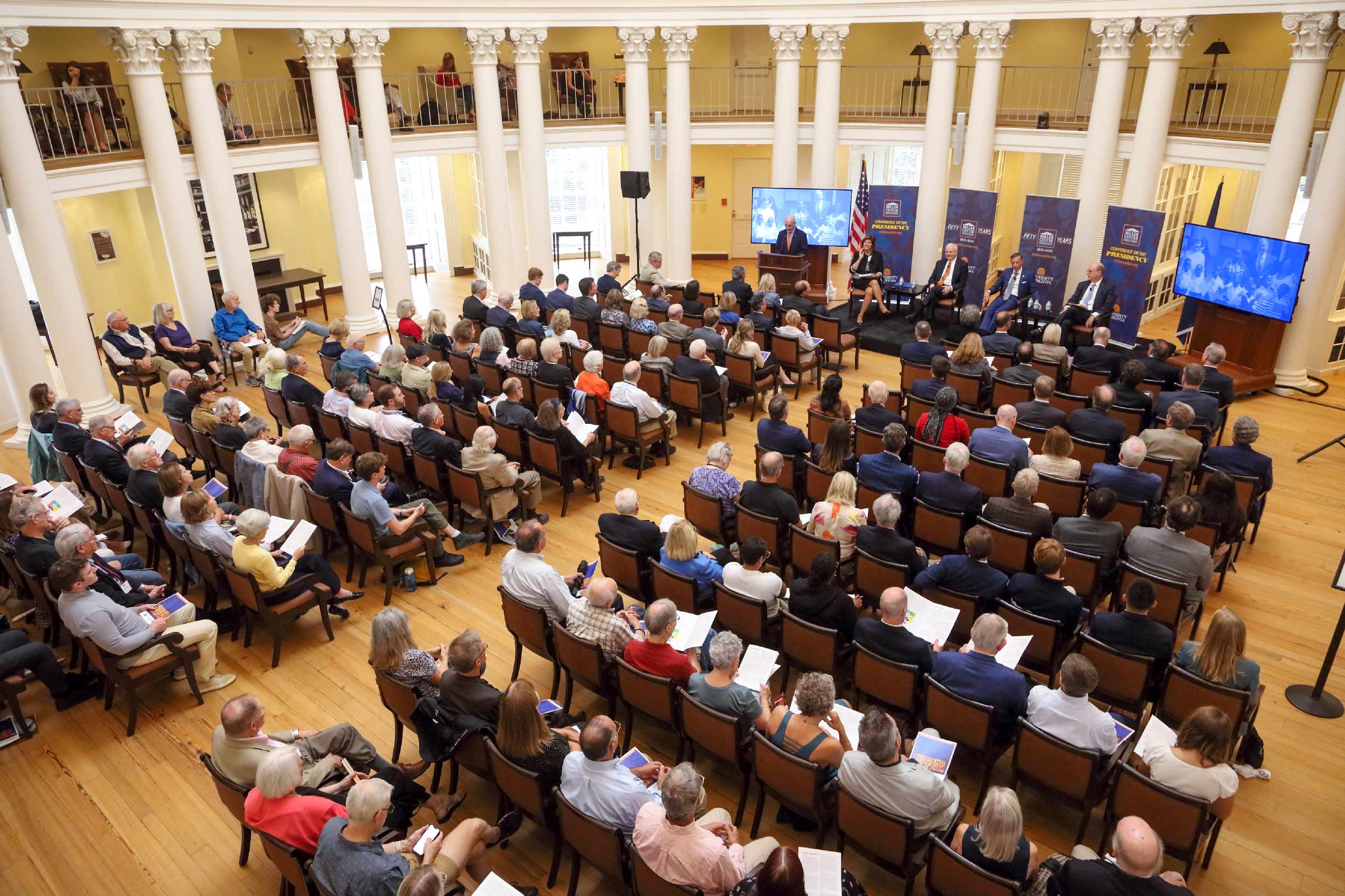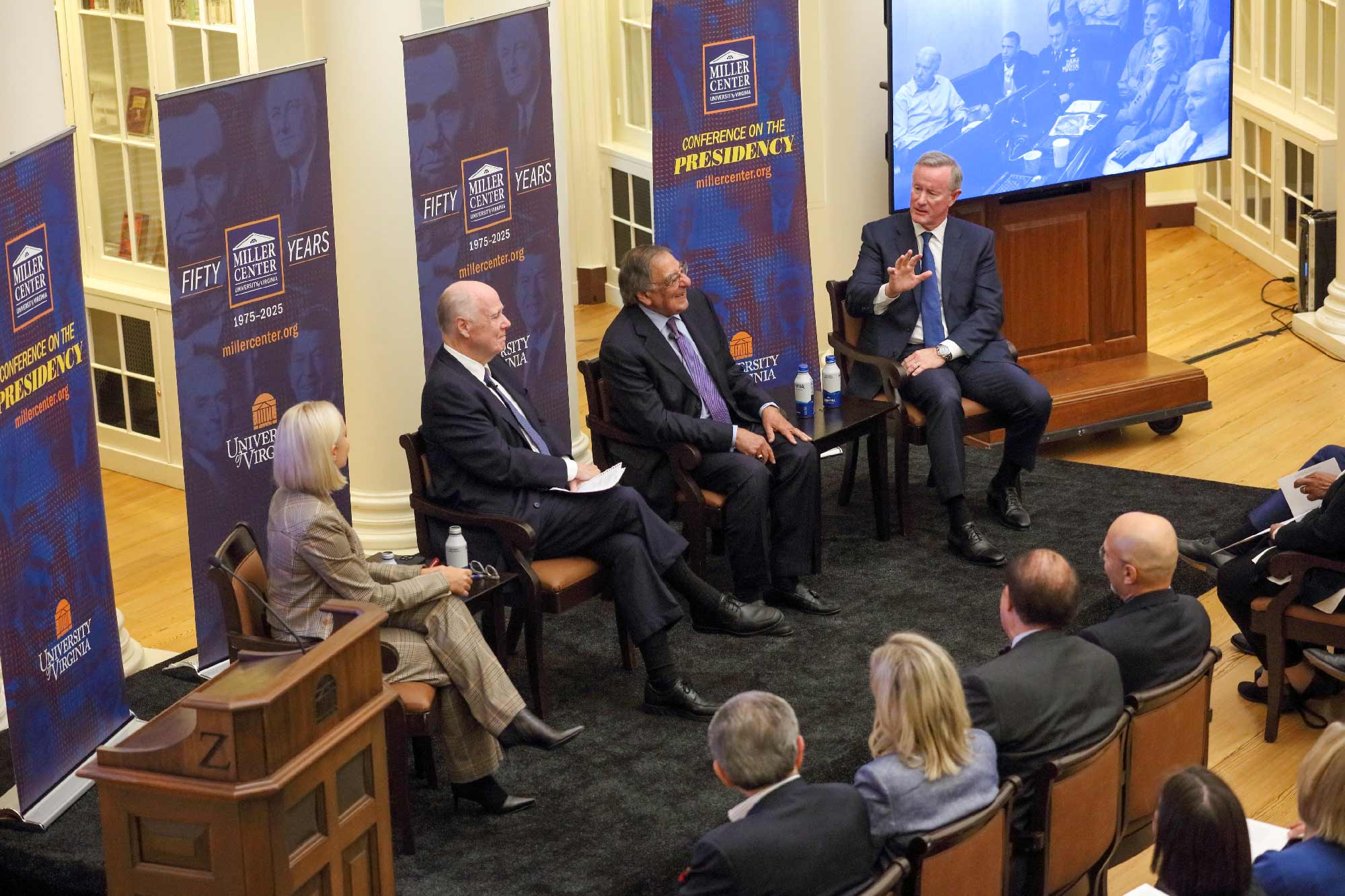Assembling a team of experts and setting a procedure to foster integrity and accountability are important first steps for U.S. presidents promoting personal projects, members of two presidential administrations told an audience hosted by the University of Virginia’s Miller Center of Public Affairs this week.
Key players in the George W. Bush administration’s President’s Emergency Plan for AIDS Relief, known as PEPFAR, which addressed the AIDS epidemic in Africa, and the Barack Obama administration’s search for and elimination of al-Qaida founder Osama bin Laden made that case Wednesday night during the Miller Center program “Presidential Leadership: Two Case Studies.”
The event, held in the Dome Room of the Rotunda, was part of the center’s 50th anniversary celebration and the “2025 Conference on the American Presidency: Toward a More Responsible and Effective Presidency.”
The panelists said that, whether the president is supportive of a project from the get-go or comes around to it later, the first step is to be committed to it. The second is to build a team that can be trusted to give honest feedback and work on his behalf.

Peter Wehner, who served as deputy assistant to Bush and director of the White House Office of Strategic Initiatives, tells the Miller Center audience how the President’s Emergency Plan for AIDS Relief came to be. (Photo by Tom Cogill)
“I would say that one of the things that is true for everybody in every administration, is to ask the hard questions, insist on metrics and be willing to evaluate what people in your administration are saying,” said Peter Wehner, who served as deputy assistant to Bush, director of the White House Office of Strategic Initiatives and deputy director of speechwriting. “Ask questions. Be accountable, resist happy talk and make sure that you’re rigorously empirical.”
“This was a president very committed to this mission,” Leon Panetta, who served as Obama’s head of the CIA and secretary of defense, told the Rotunda audience of a three-year effort to find and eliminate bin Laden. “This was a daily affair where you’re meeting other officials in the White House. It was a tight group because we didn’t want it to get out. It was very classified what we were doing.”
Dr. Mark Dybul and Joshua Bolton, who served as policy director for Bush’s 2000 presidential campaign, joined Wehner on the Miller Center panel. Dybul is a professor in the Department of Medicine at Georgetown University Medical Center and cofounder and chief strategy officer of the Center for Global Health Practice and Impact. He designed the anti-AIDS program.











